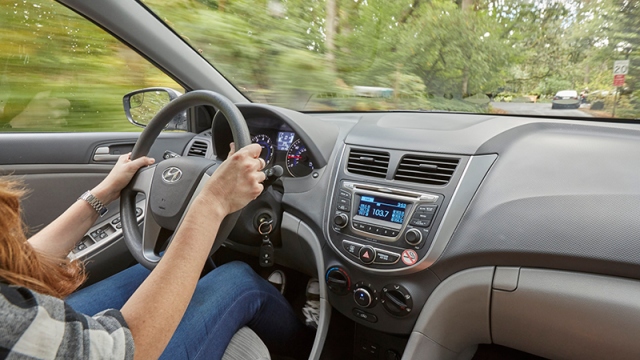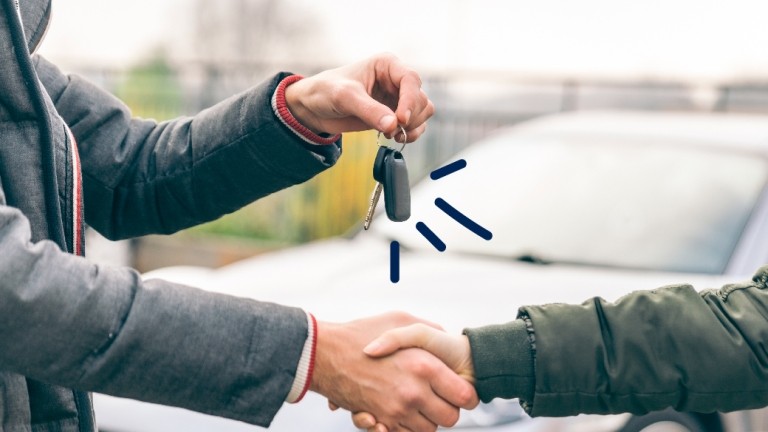I want to sell my car private party – but I still have a loan balance

When life changes, so do your driving needs. Your family grows, and suddenly your car is too small. You get a new job, and the commute makes you long for better fuel efficiency. You move to the city and decide you don’t need to drive at all.
But what if you still owe money on your car? Will that affect your ability to sell it? Not at all — if you make enough from the sale to pay off your loan, or you have enough cash available to make up for any difference between the sale price and the payoff.
Car loan terms are getting longer, and it’s common to outgrow your vehicle before you’ve finished paying it off. In fact, most of the cars sold today already have an existing lien on them. A lien means the seller still owes money on the car; until it’s paid off, the lender holds the title.
An outstanding balance doesn’t mean you can’t sell your car, but it does make the process a bit more complicated. If you’re planning to sell to a private party, there are a few things you’ll need to do before you can transfer the title to the new owner. Follow the steps below to ensure a quick and seamless sale.
Step 1: Pay off your auto loan.
The fastest way to get the title into the buyer’s hands is to visit one of our OCCU’s branches personally and pay off your loan with cash or a verifiable cashier’s check. As long as one of our team members can verify the funds on your cashier’s check, we can release the car title right away. Otherwise, it takes 20 days for the funds to clear.
What if the buyer lives out of town? If the buyer isn’t local, they can:
- Wire the funds to your savings account (there's usually a charge for this).
- Send the OCCU team a check directly.
What if the buyer is financing the vehicle? Ask them what information and documents their financial institution needs from you. Typically, they’ll require:
- Copy of the registration.
- Your loan account number.
- 10-day payoff amount.
- Address for sending payment.
Step 2: Transfer the title.
Once your loan payment is verified, we’ll let our title department know to prepare the title for release. Local buyers can come pick it up from our corporate office once it’s ready. Otherwise, we’ll collect the buyer’s mailing address and send it out as soon as everything clears. If the buyer is financing the car, we’ll send the title directly to their financial institution.
Step 3: Sign a bill of sale.
A bill of sale serves as proof that you’ve transferred the ownership of your car to someone else. This can protect you down the road on the buyer abandons or fails to register the vehicle. Most States have an online bill of sale you can download and print. You will need to provide documents to complete the transfer and ensure your liability for the vehicle is transferred to the purchaser. The exact documents you’ll need depend on the age of your car. Ten years or older: Use the Oregon Department of Motor Vehicles (DMV) Bill of Sale. Provide a copy for the buyer as well as one for yourself.
- Newer than ten years: You’ll need to sign an Oregon DMV Odometer Disclosure, a triplicate form available at the DMV or any of our OCCU branches. Give the original to the buyer and keep the copies for your files.
Step 4: Notify the DMV.
As the vehicle’s seller, you’re required to report the sale to the State’s Department of Motor Vehicle within a specific number days. The report is made to the state where the vehicle is registered, if it differs from where you live. Each State’s requirements are different. If you live in Oregon, Washington, or Idaho, use the links below. If you live in another State you can online search for “motor vehicle notice of sale or transfer form” to find the appropriate authority and form.
- Oregon - https://www.oregon.gov/odot/Forms/DMV/6890fill.pdf
- Washington – https://dol.wa.gov/vehicles-and-boats/vehicles/vehicle-registration/report-vehicle-sale
- Idaho - https://itd.idaho.gov/wp-content/uploads/2016/06/3858.pdf
Selling your car to a private party may not be as easy as going to a dealership, but it can net you more money. Following these steps will help make the sale as smooth as possible so you can start shopping for your next vehicle.
If you have questions, give us a call at 800-365-1111


